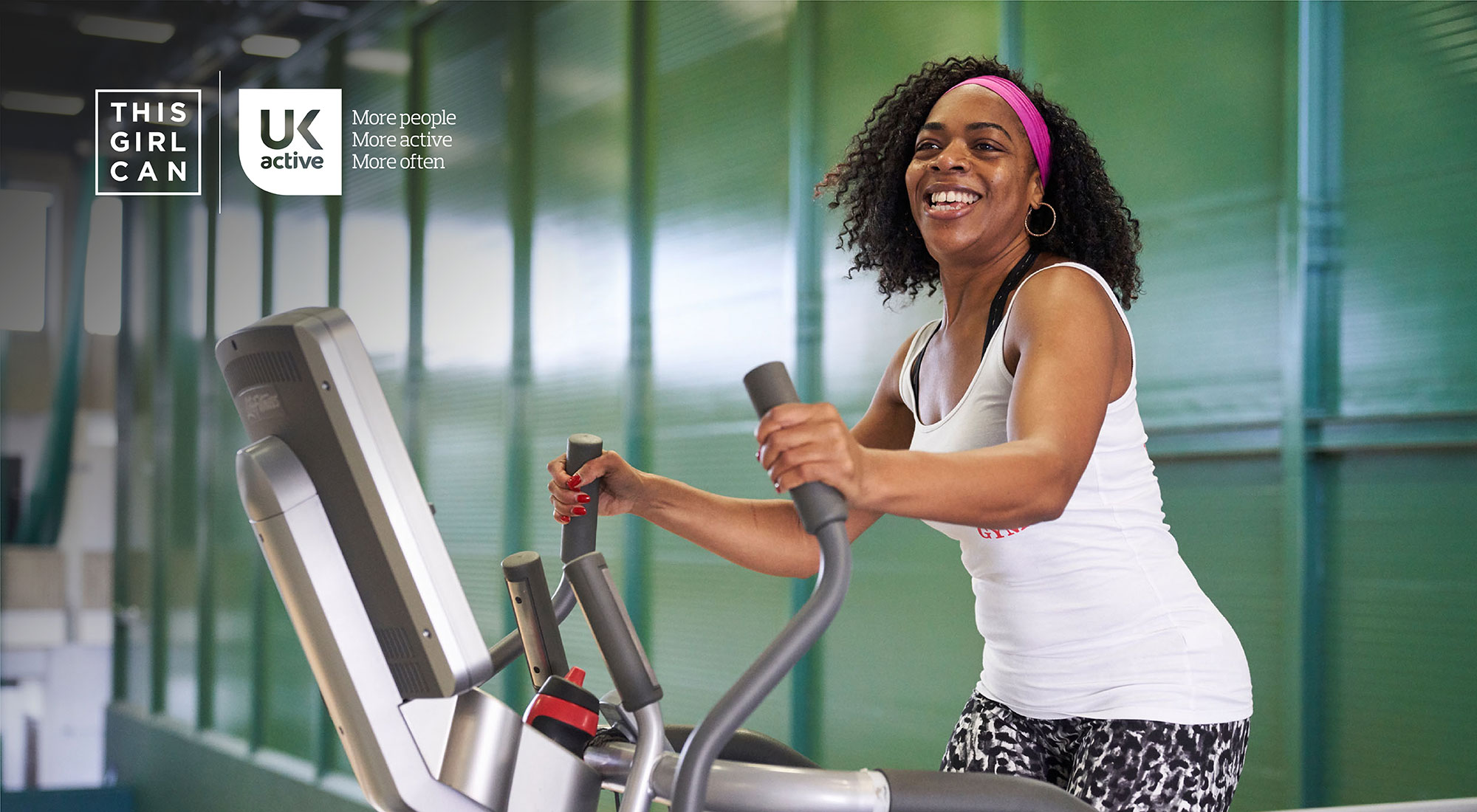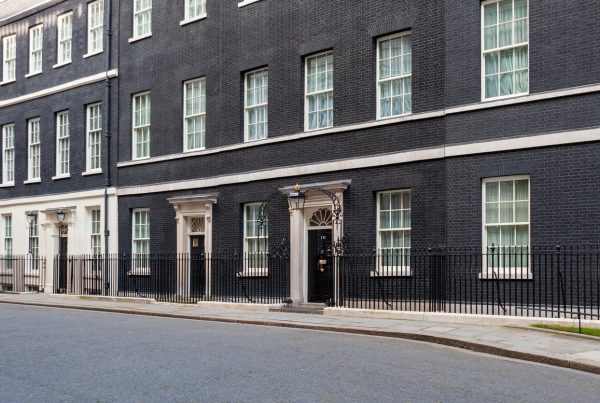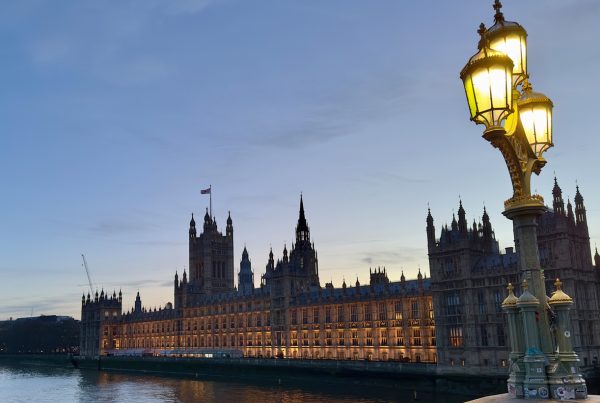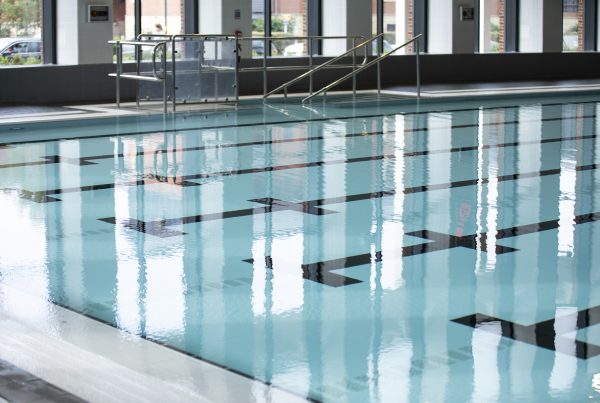ukactive and Sport England’s This Girl Can campaign have joined forces to publish a practical guide filled with fresh insight, guidance and tangible solutions to support fitness and leisure operators in getting more women and girls active within their facilities.
Launched today (10 November), the guide, called ‘How to improve your services for women and girls: As told by the 51%’, is designed to help gyms and leisure facilities to reduce the barriers experienced by many women and girls who would like to be more active – with the title reflecting the fact that women make up over half of the population.
The work forms part of a shared ambition proposed by Baroness Tanni Grey-Thompson, between ukactive, the Government and its agencies, to grow the membership of these facilities by more than five million people by the end of the decade.
Before the pandemic, fitness-based activities were a major contributor to female participation in physical activity. Sport England’s Active Lives Survey 2019 showed that 21% of women and girls aged 16 and over had taken part in fitness classes at least twice in the previous 28 days. It also showed rising demand, with a 1.6% rise between 2018-2019 in women and girls taking part in weights session at least twice in the previous 28 days.
In September this year a survey of 2,000 women and girls by Sport England and Savanta ComRes* showed a desire from women to do more physical activity, with 57% of women stating that they intend to do more physical activity, compared to 44% of men – highlighting a huge opportunity for providers to cater to this demand and audience.
To support the development of the new guide, ukactive and This Girl Can conducted a bespoke survey with 1,030 women and girls over 16, alongside a series of focus groups. They found that while many women and girls do positively engage in sport and physical activity within gyms and leisure facilities, many others do not, for a range of reasons.
The guide, which has been welcomed by leading fitness operators, includes practical guidance and checklists to help improve the engagement, experience and confidence of women and girls using gyms and leisure facilities.
It features advice on how to improve online communication and messaging to women to reduce anxiety around worries and fears they have about entering this setting, which ranges from where to go when they arrive, to how to perform specific exercises.
The guide highlights the importance of increasing awareness of the overall health benefits of being active for a female audience and offers advice on robust policies to tackle personal safety fears.
It also includes case studies from operators in both the public and private sector that have implemented successful strategies to improve services for women and girls, from staff training and interaction, to flexible programming, specialist equipment introductions, and commitments to personal safety.
Findings from the research by ukactive and This Girl Can are highlighted within the new guide and in a detailed supporting document, so that operators can act on the latest evidence from women and girls.
The reasons cited for not being active in gyms and leisure facilities included: fear of judgement from both men and women; cost; worries about personal safety; knowledge about using equipment; and images used of women in marketing materials that are unrelatable and make women feel negative about themselves.
Key survey findings:
- Of all respondents, three in five women and girls (60%) have visited a fitness or leisure centre at least once a month, within the past three years.
- However, half (50%) of the women that have experience of exercising in fitness and leisure centres in the past three years say they worry about being judged in this setting.
- Of all respondents, more women say they are worried about being judged by other women (27%) than by men (22%).
- Approaching half (45%) of women say a member of staff showing them how to perform exercises/activities and use equipment would encourage them to participate in more activity within fitness and leisure centres.
- 13% of women say they worry about the risk or threat of sexual harassment, intimidation or embarrassment in this setting.
- Cost is most often identified as a barrier to participation in exercise or physical activity within a fitness and leisure centre, with a third (32%) of respondents who have attended a fitness and leisure centre in the past three years citing it is too expensive.
Huw Edwards, CEO of ukactive, said: “We have listened closely to the views of women and girls about how they feel using our nation’s gyms and leisure centres.
“We know how popular fitness activities can be among women and girls, but there is a huge opportunity for our sector’s facilities to engage many more, as part of our shared ambition with the Government to reach five million new members this decade.
“Reducing the barriers to female participation is a fundamental challenge for our sector, with our research showing clear demand from more women and girls to be able to enjoy these facilities.
“We are proud to partner with Sport England’s This Girl Can campaign to produce this practical guide for our members, which we believe will be a crucial tool to help improve their services for women and girls.”
Tim Hollingsworth, CEO of Sport England, said: “Our most-recent Active Lives report shows that the gender activity gap remains, so it’s crucial that we focus on getting more women regularly active.
“Leisure environments are important for sustaining women’s activity levels; prior to the pandemic, 21% of women were regular participants in fitness classes, while the number of women taking part in weights sessions was also seeing an increase. By listening to women and working with fitness providers to develop the guidance, we’re confident that it will help even more facilities to engage with women.
“The development of this guidance has been a great example of collaboration on behalf of the sport and physical activity sector, and will support organisations to appeal to more women.”
Rebecca Passmore, UK Managing Director at PureGym, said: “I feel very strongly that we need all women to feel like gyms are places they can belong, feel safe and confident to get active.
“Through the work done by ukactive and Sport England we now have a clearer picture of women’s concerns about exercising at the gym, which is vital in our ability to start breaking down the barriers.
“At PureGym we are already working hard to address these challenges, but seeing as these are industry-wide issues, we need an industry-wide response to make a real difference.
“The launch of this guide will aid our collective efforts to make facilities more inclusive and welcoming environments, and to empower women to start their health and fitness journeys.”
Sarah Roberts, Head of Fitness and Healthy Communities at Places Leisure, said: “As a social enterprise operating local leisure centres, we know that our services can help women and girls to enjoy physical activity, gain confidence and social support, while also improving their overall health and wellbeing.
“We want to engage with inactive women and girls within the communities we serve so that they can enjoy the benefits of being active in an environment they feel is comfortable and made for them.
“We are proud to support this work from ukactive and Sport England’s This Girl Can campaign, and we hope that by offering fun and interactive options in a non-intimidating setting we can help more women to be active.”
Read ukactive CEO, Huw Edwards, discussing the importance of this work here.
Click here to download the guide.
*Physical Attitudes and Behaviours Survey, Savanta ComRes, Wave 20, carried out between 10 September 2021 and 13 September 2021, with approx. 2,000 woman and girls aged 16 and over.

More People More Active More Often




